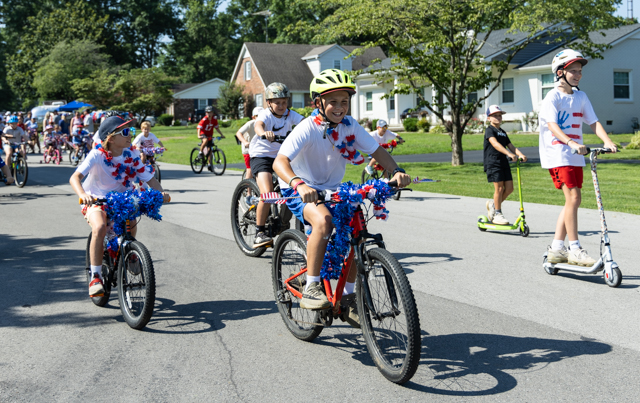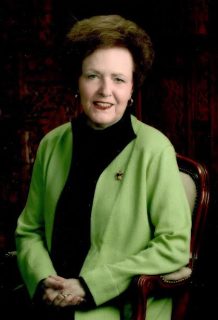Communication Disorders Clinic: WKU’s best-kept secret
Published 12:00 am Wednesday, March 9, 2011

- Miranda Pederson/Daily NewsJordan Floyd, 4, of Bowling Green works with Western Kentucky University speech therapist graduate student Katelyn Fichner on Thursday at the Communication Disorders Clinic as Mary Lloyd Moore (left) director of the Communication Disorders Clinic and Jordan's aunt Remona Floyd watch and listen at the Clinical Education Complex.
When Allison Small turned 5 years old, she wasn’t yet able to speak. Her mother, Cari Small, heard that a child’s brain stops developing by age 5, and she was convinced that her daughter would never talk.
“I went into the bathroom and bawled,” Cari Small said. But Allison would soon speak her first words and continue to grow. Now, at 16, “she’ll talk your ears off.”
For the past 12 years, Allison has attended sessions at Western Kentucky University’s Communication Disorders Clinic. Even though it has operated since 1975, it’s an organization that directors and clients claim is a well-kept secret.
It’s the only university clinic licensed by the state Outpatient Rehabilitation Service Agency, and it’s growing. Since it moved in 2006 into a new facility on 14th Avenue, the clinic has grown by 20 percent in both clients and therapists, said Mary Lloyd Moore, clinic director.
It’s a dual opportunity clinic: It helps clients while teaching students. About 43 WKU students act as therapists, working with children and adults who have speech problems. Students are supervised by 10 professional therapists.
“Communication is power, and language is the number one predictor of school success,” said Caroline Hudson, a supervisor.
While a majority of clients are children, therapists work with anyone who has communication issues. They see people who have autism and Down syndrome, people who had brain injuries or strokes and people with other disabilities. Sessions generally cost $360 a semester.
“We won’t turn anyone away,” Moore said, adding that therapists work with some children who have very mild speech problems. “On the other side of it, we see children who are totally nonverbal.”
When Deloris Floyd first brought her granddaughter, Jordan, to the clinic more than two years ago, the toddler wasn’t talking.
When Floyd took custody of Jordan, doctors and therapists told her Jordan was delayed in several areas. She took Jordan to many therapists in Kentucky and Tennessee, “but she never started talking,” Floyd said.
But this past summer, 4-year-old Jordan spoke her first word: Mama.
“Since that, she has just blossomed,” Floyd said. “It’s just one of the best-kept secrets in Bowling Green.”
Student therapists often spend multiple days a week with a client, but they’re not the only ones who oversee the sessions. Parents, supervisors and other students can watch the sessions through large windows that overlook the session rooms.
Clients and therapists cannot see the onlookers, but parents can see and hear their children’s sessions. Last week, supervisors and parents sat in one room, watching a student therapist work with a boy in the adjoining room.
“We’re all can-do people. We want it to happen for these kids,” Hudson said. “They run through your mind all day long. It’s hard to let it go when you leave.”
WKU students work with some clients who simply have trouble pronouncing certain letters. They work with others, however, who cannot speak or have trouble conversing.
Nancy Jackson’s 13-year-old son, Cole, is not yet conversational, “but he’s on his way,” Jackson said.
“Without this program … Cole wouldn’t be where he is academically and personally,” she said. “I cannot tell you the difference they have made.”
Cole recently made a 100 percent on a social studies test – a big accomplishment for a boy who once could not participate in class, Jackson said.
“They’ve impacted his entire life,” she said.
Morgan, an 11-year-old client, struggles with math and reading. Now, with the help of therapists, she’s on a fourth-grade reading level, which is a big step, said her mother, Lori Douglas.
Therapists are teaching Morgan to better communicate with others. Morgan has high-functioning autism and often struggles in social situations. So therapists suggested having sessions with another girl who has similar issues.
The combined sessions have worked. In addition to enhancing her conversational skills, Morgan made a friend.
“Both of them just blossomed together,” Douglas said. “That’s huge for us because she doesn’t do that in school.”
And the clients also impact their therapists – WKU students often learn as much from their clients as their clients learn from them. They use different techniques to teach verbal skills, from flash cards to beach balls.
Jordan clicks with her therapist, Katelyn Fichner, who uses paper turtles to teach Jordan vowels.
“It’s been so great to see her progress over two years,” said Fichner, a communications disorders graduate student from Florence. “When I go back and think to two years ago, she has really come a long way.”
The program has given students hands-on training. It gives students, such as Rachel Neuner, a taste of their future career duties.
“It really wasn’t until I got in the program that I learned more of what it’s about. I was called to do this for a reason,” said Neuner, a senior communication disorders major from Louisville. “I go to work every day loving to go to work.”
Now, directors are looking to expand the program. They hope to one day hire full-time occupational and physical therapists, as well as a psychologist and nurse practitioner, they said.
“We want to place a great emphasis on family care giving, taking care of people who take care of children,” said Rhonda Talley, executive director of the Clinical Education Complex, which houses the communication disorders clinic.
The clinic has become a comfort zone for parents of children with disabilities, who say they often feel alone and isolated from other parents.
“You often feel like you’re a minority,” Jackson said. “When you come here, you feel like you belong.”
Both Small and her daughter, Allison, have found a place to belong over the past 12 years. Speech sessions are a highlight of Allison’s week, and she often comes home with painted fingernails and stickers, Small said.
But, most importantly, she has learned to communicate, she said.
“We finally have a child who’s able to communicate her emotions,” Small said.






